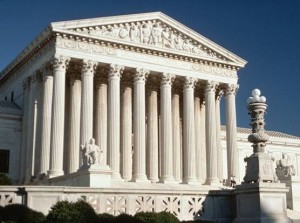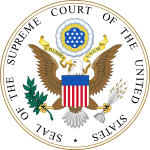 In a case that begin with a claim for a refund of estate taxes paid, Judge Barbara S. Jones of the Southern District of New York ruled that the Defense of Marriage Act (DOMA) is unconstitutional under the Equal Protection Clause of the 5th Amendment.
In a case that begin with a claim for a refund of estate taxes paid, Judge Barbara S. Jones of the Southern District of New York ruled that the Defense of Marriage Act (DOMA) is unconstitutional under the Equal Protection Clause of the 5th Amendment.
Edie Windsor and Thea Spyer were a couple for over 40 years and in 2007 were married in Canada where same-sex marriage was legal. Their marriage was later recognized in their home state of New York. Upon Thea’s death, Edie paid $363,053 in federal estate taxes because she was not eligible for the unlimited marital deduction under IRC Section 2056(a) – a benefit routinely applied to married couples of different sexes. Edie filed a claim for refund of the estate taxes on the grounds that DOMA denied her equal protection under the law as protected by the 5th Amendment to United States Constitution.
Frequent readers know that when possible we like to note interesting procedural aspects of the cases we feature here and this cases qualifies in two aspects. First, was the question of the parties. The case was filed in November of 2010. In February of 2011, Attorney General Eric Holder announced that the Department of Justice would not defend the constitutionality of DOMA. Given that DOJ would no longer defend the suit, the Bipartisan Legal Advisory Group (BLAG) of the U.S. House of Representatives moved to intervene under F.R.C.P. 24 and defend the matter in the place of the Department of Justice. The group’s order was granted. Thus, the parties to the final order were Ms. Windsor as plaintiff and BLAG as defendant-intervenor.
The second interesting procedural note before the court was Edie’s standing to bring the suit. Standing generally requires three elements: (1) an injury in fact, (2) a causal connection between the defendant and the injury, and (3) a means of remedy within the power of the court. The defendant-intervenor argued that Ms. Windsor did not satisfy the second of these elements. The court disagreed noting the State of New York’s recognition of Edie and Thea’s marriage at the time of death as a factor in its finding.
On the ultimate question, the District Court granted Ms. Windsor’s motion on summary judgment ruling that section 3 of DOMA was unconstitutional because it failed to establish a rational basis for advancing a legitimate government under the Equal Protection Clause. The court ordered a that Edie’s refund claim be paid with interest.
Read the entire opinion here:
Windsor v. U.S., No. 10-cv-08435 (SDNY June 6, 2012)
 The United States Supreme Court has struck down the Defense of Marriage Act (DOMA) as an unconstitutional violation of the “equal liberty” protections of the 5th Amendment.
The United States Supreme Court has struck down the Defense of Marriage Act (DOMA) as an unconstitutional violation of the “equal liberty” protections of the 5th Amendment.



